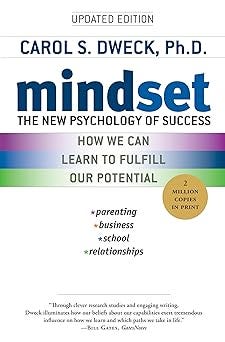Embarking on a career transition is a transformative journey that demands careful planning, courage, and perseverance. Whether you’re seeking greater fulfillment, pursuing new opportunities, or adapting to industry changes, transitioning careers can be both exhilarating and daunting. However, amidst the excitement, it’s crucial to steer clear of common pitfalls that could impede your progress and hinder your success. In this article, we delve into the top five things to avoid when making a career transition, offering insights and strategies to help you navigate this pivotal phase with confidence and clarity.
Rushing Without a Plan:
One of the gravest mistakes individuals make when transitioning careers is rushing into the process without a well-defined plan. While the allure of change may be compelling, hastily abandoning your current path without thoughtful consideration can lead to unintended consequences. Take the time to assess your motivations, interests, and long-term goals. Conduct thorough research into your desired industry or profession, evaluating its demands, growth trajectory, and cultural fit. By developing a strategic roadmap that outlines actionable steps and timelines, you can mitigate risks and make informed decisions that align with your aspirations.
Do What You Are: Discover the Perfect Career for You Through the Secrets of Personality Type

Check It Out Here<<<Finding a career path that you’re passionate about can be difficult — but it doesn’t have to be! With this bestselling guide, learn how to find a fulfilling career that fits your personality.
Ignoring Skills and Experience:
Transitioning to a new career doesn’t necessitate starting from scratch. Many individuals overlook the valuable skills and experiences they’ve acquired throughout their professional journey. Whether it’s project management expertise, effective communication skills, or problem-solving abilities, your past experiences can serve as a springboard for success in your new endeavor. Take inventory of your strengths and identify transferable skills that are relevant to your desired role. By leveraging your existing capabilities and positioning yourself as a valuable asset, you can enhance your marketability and accelerate your career transition.
Neglecting Networking:
In today’s interconnected world, networking plays a pivotal role in career advancement and professional development. Yet, amidst the hustle and bustle of transitioning careers, many individuals neglect to cultivate meaningful relationships within their target industry. Building a robust network of mentors, peers, and industry professionals can provide invaluable insights, support, and opportunities. Attend industry events, join online communities, and engage in informational interviews to expand your network and glean firsthand knowledge about your desired field. By nurturing authentic connections and fostering reciprocal relationships, you can amplify your visibility and open doors to new possibilities.
Mindset: The New Psychology of Success

Underestimating Training and Education:
In an era of rapid technological advancements and evolving skill requirements, continuous learning is indispensable for career growth and adaptability. Unfortunately, some individuals underestimate the importance of ongoing training and education when transitioning careers. Whether it involves acquiring industry-specific certifications, enrolling in skill-building courses, or pursuing advanced degrees, investing in your professional development can enhance your competencies and credibility within your new domain. Embrace a growth mindset and remain receptive to acquiring new knowledge and expertise that will enrich your career journey.
Fear of Failure or Change:
Amidst the uncertainty of career transitions, it’s natural to experience apprehension and self-doubt. However, succumbing to the fear of failure or change can paralyze your progress and inhibit your potential for growth. Instead of viewing challenges as insurmountable obstacles, reframe them as opportunities for learning and personal development. Cultivate resilience, optimism, and a willingness to embrace ambiguity as you navigate the complexities of your career transition. By confronting your fears head-on and adopting a proactive mindset, you can harness your innate potential and chart a course towards fulfillment and success.
Conclusion:
Navigating a career transition is a multifaceted journey that requires careful planning, self-awareness, and resilience. By avoiding the common pitfalls outlined in this article and embracing proactive strategies for success, you can navigate the complexities of change with confidence and clarity. Remember to approach your transition with intentionality, leverage your existing strengths, cultivate meaningful connections, prioritize continuous learning, and embrace the inherent opportunities for growth and self-discovery. With perseverance and determination, you can chart a rewarding career path that aligns with your passions and aspirations, propelling you towards a brighter and more fulfilling future.
